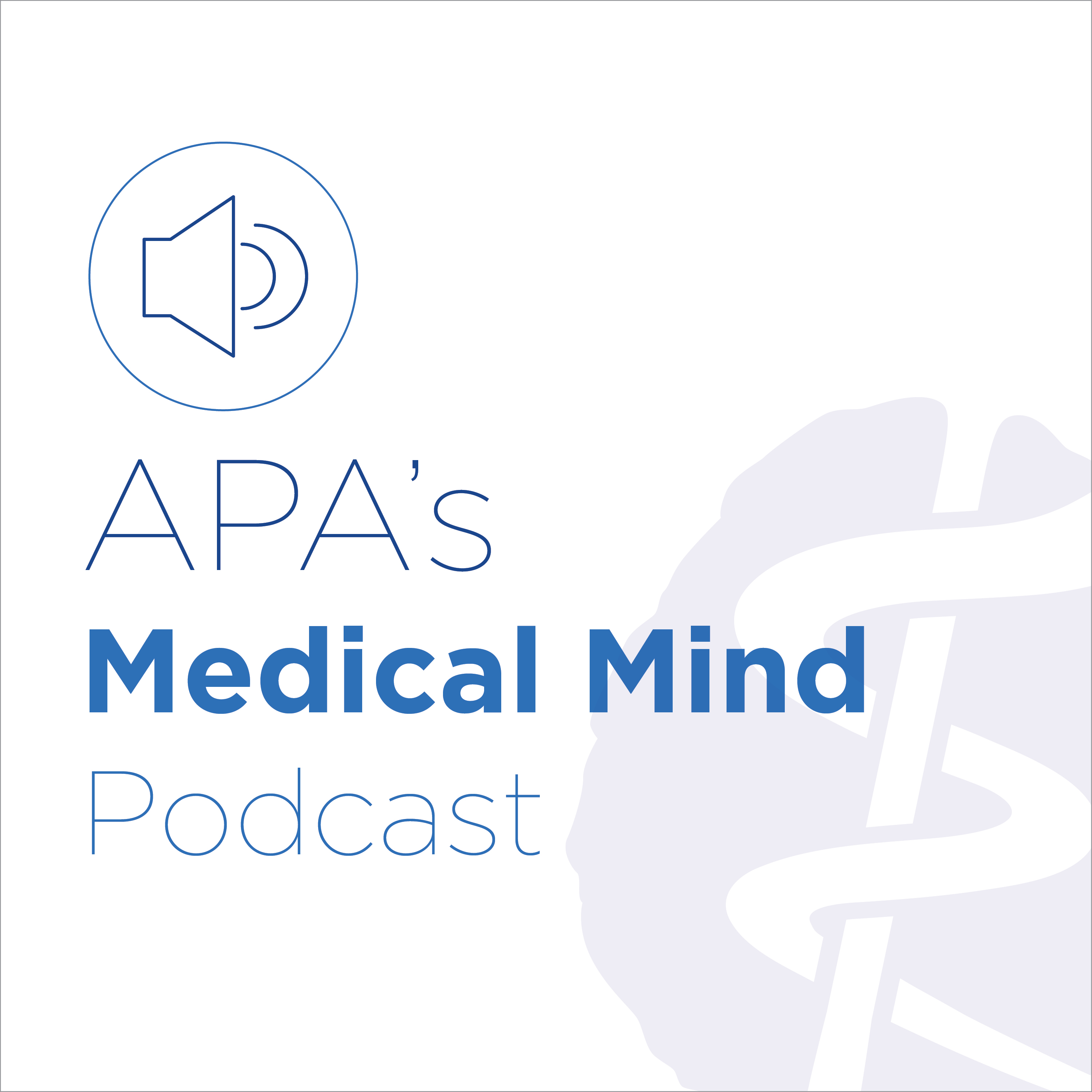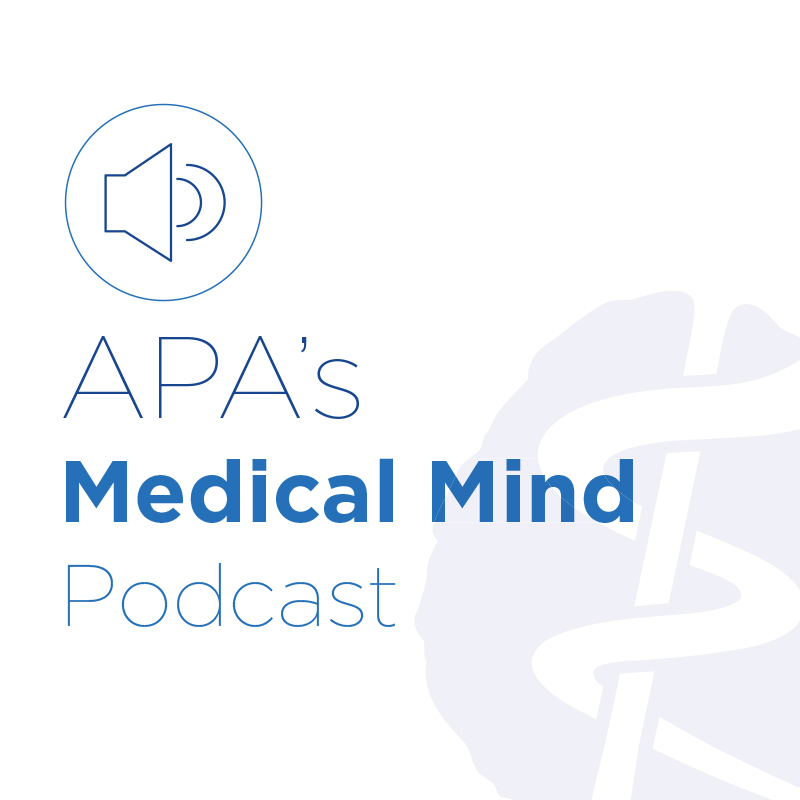
The Medical Mind
APA’s Medical Mind Podcast covers the latest in psychiatric medicine and emerging trends in the field of mental health care. APA members and other health care professionals provide insight into the intersection between mind, brain and body. The Medical Mind is the home for all of APA’s podcast content, and features new series and as well as highlights from AJP Audio, Finding our Voice, Psychiatric Services from Pages to Practice, and more.
DISCLAIMER: This podcast is subject to the Terms of Use at www.psychiatry.org. The views and opinions expressed in this podcast are those of the individual speakers only and do not necessarily represent the views of the American Psychiatric Association, its officers, trustees, or members. The content of this podcast is provided for general informational purposes only and is not intended as, and shall not be understood or construed as, medical or any other type of professional advice nor does it represent any statement of the standard of care. We strongly recommend that any listener follow the advice of physicians directly involved in their care and contact their local emergency response number for any medical emergency. The information within this podcast is provided as-is and is not guaranteed to be correct, complete, or accurate.
- Update frequency
- every 17 days
- Average duration
- 25 minutes
- Episodes
- 71
- Years Active
- 2017 - 2025

Supporting Young People with Substance Use Disorders
Only 10% of 12- to 17-year-olds in need of substance use treatment actually receive care. This is the same period when people are most likely to begin abusing drugs, and adolescent drug use is an imp…

Initiating Medication-Assisted Treatment in the Hospital
Hospitals and public health officials are increasingly motivated to initiate medication-assisted treatment in the hospital setting. Chris Welsh of the University of Maryland School of Medicine explai…

Mental Health Innovation Zone 2018
At this year’s APA Annual Meeting, participants in the Mental Health Innovation Zone previewed some exciting developments in the prevention, diagnosis, and treatment of mental illness.
Music: "Sideca…

New Tools for Alcohol Treatment
In this episode we'll look at two new tools for the treatment of alcohol use disorder. Lori Ducharme introduces the NIAAA Alcohol Treatment Navigator, and Laura Fochtmann highlights a new APA Practic…

Disaster Recovery and Mental Health
How do natural disasters impact mental health? Sheila Savannah, Ben Springgate, Ken Wells, and Glenda Wrenn discuss how providers and their communities can prepare for and recover from natural disast…

Caring for Displaced Persons
There are currently more refugees worldwide than at any time since World War II. James Griffith of George Washington University explains how psychiatrists can approach the unique mental health needs …

Collaborative Care for Substance Use Disorders
The collaborative care model is designed to increase access to mental health care by treating common conditions in primary care settings, which are often the front lines for diagnosing depression, an…

Pain Management and Psychiatry
As psychiatrists see more referrals for substance use disorders, we examine their role in managing pain. Carlos Blanco, Eric Collins, Alla Landa, Martin Cheatle, and Ivan Montoya weigh in on common p…

A Bioethical Framework for Prescribing Opioids
Travis Rieder of the Johns Hopkins Berman Institute of Bioethics describes his experience of opioid withdrawal after a serious accident and outlines a bioethical framework for opioid prescribing. Joh…

Smart and Secure Children
Glenda Wrenn of the Morehouse School of Medicine discusses the Smart and Secure Children Parenting Leadership Program, a parenting education initiative that plays a unique role in the communities it …

Mobile Apps for Mental Health
Mobile mental health apps are proliferating. How do we know if they're safe or effective? John Torous and Steven Chan describe a framework for evaluating mental health apps and discussing them with…